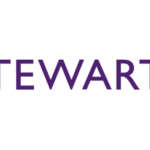Renewable has been the star sector in the Spanish energy market during the last years. The country weather conditions, the existence of a relevant experienced industry, the availability of financing, the support of the public administration and the recent policies have resulted in a very successful cocktail, permitting a significant development of renewable technologies making Spain a global leader in this field.
Specifically, early this year, the Government announced a new set of legislation to promote and update the Spanish renewable legal framework. Apart from other provisions, recently, a new provision has been passed to regulate a new economic regime based on competitive auctions under the principle ‘paid-as-bid’. Additionally, before ending 2020, a new rule on access and connection to the grid is expected to be approved and, early 2021, a law on energy transition.
The new remuneration framework for the generation of electricity from renewable energy sources (REER) is based on a long-term recognition of a price for energy awarded in competitive auctions. REER intends to establish a stable framework to encourage investment and economic activity in renewable in Spain to achieve the renewable production targets set in the National Integrated Energy and Climate Plan 2021-30. This Plan provides for the installation of about 60GW of renewable in the next decade.
In order to qualify for the auction, facilities should use a non-fossil renewable energy as their primary energy. More specifically, the facility must be the result of a new investment after the auction; either a new facility or an enlargement and/or amendment of an existing one (in which case it will only be eligible for the scheme in the part corresponding to the new investment). Additionally, these facilities may be made up to more than one technology (hybridisation systems) and/or include storage systems.
The REER is neither compatible with any other previous remuneration scheme applicable to renewable nor with any other aid or subsidies of the same nature unless the Government approve it expressly. Apart from that exception, the rest of the Spanish renewable legal framework will be applicable to the facilities covered by the REER.
The REER will be granted through an auction procedure. Each specific auction will be called by resolution issued by the government from time to time. However, an auction calendar for the next five years will be published shortly and updated annually.
Furthermore, the National Commission for Markets and Competition (CNMC) will supervise the auction and the Spanish Electricity Market Operator (OMIE) will administer the results.
The auction may be called distinguishing among the different generation technologies and/or considering their technical characteristic, size, manageability levels, location criteria, technological maturity and other criteria. Besides, for small installations (less than 5MW) and pilot projects, the auction rules may provide for the exemption from competitive bidding procedures.
The provision of financial guarantees for the specific amounts requested in each case will be a prerequisite for participating in the auction process.
The product to be offered may be a) installed capacity or b) electrical energy or c) a combination of both of them. This issue will be set out in the specific regulation to be passed for each auction. The bid variable will be the price per unit of electrical energy expressed in euros/MWh.
The awarding contracts by auction will be granted using a payment-according-to-offer mechanism. The resolution calling for the auction will set a maximum price (reserve price) and a minimum price (risk price). The selection of bids will be based on: a) discarding those higher than the reserve price and, if there is a risk price, those lower than the risk price; b) they shall be ordered from lowest to highest value of the bid; c) starting with the lowest bid, they shall be awarded until the quota established in the resolution calling for the auction is reached.
The bid volume cannot be less than 20% of the product of the auction and the same business group may not exceed 50% of the auctioned product (the ministerial order may reduce this amount).
The price to be paid for the electricity shall be its awarding price resulting from the auction. The auction price will not be updated and will remain the same under the principle of ‘paid-as-bid’.
The period for selling the electricity under the awarded bid will be between 10 and 15 years. However, it may be exceptionally extended up to 20 years for technologies with a high incipient investment or technological risk.
The installations under the REER will participate in the daily and intraday electricity market and may participate in the system operator’s adjustment and balance services. However, the installations cannot enter into physical bilateral contracts.
The electricity market operator (OMIE) will carry out the liquidations of the energy of auction between the prices of the daily and intraday markets and the price to perceive established for each installation hosted by the REER. The liquidation may be positive or negative. If the matching price of the bid unit is higher than the price that the installation must receive according to the awarded auction, it means an economic surplus, that is, an income for the electric system. On the other hand, if the matching price of a bid unit is lower than the price that the installation must receive, it implies an economic deficit that will entail an obligation to pay for the electric system.
For more information, please contact:

Francisco Solchaga
E: solchaga@araozyrueda.com

Laura Vintanel
E: vintanel@araozyrueda.com
Partners – Energy Department
Araoz & Rueda














